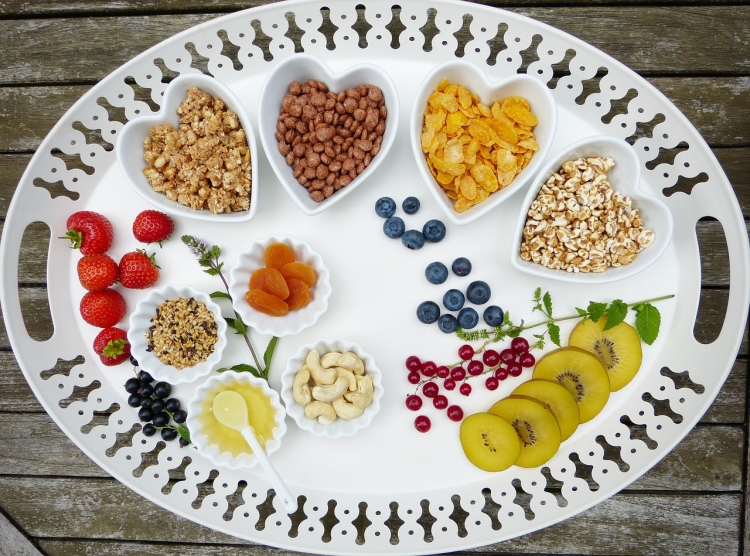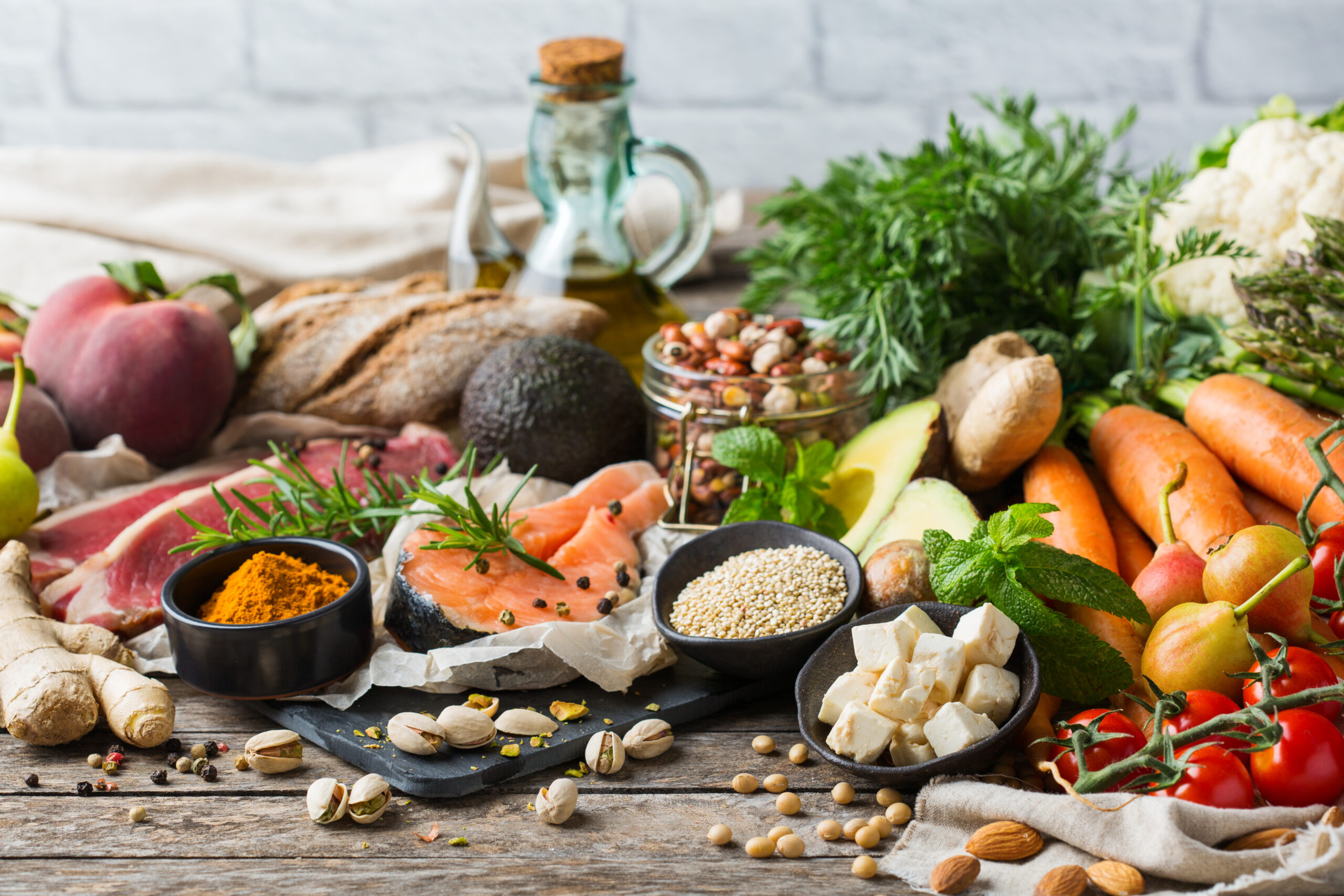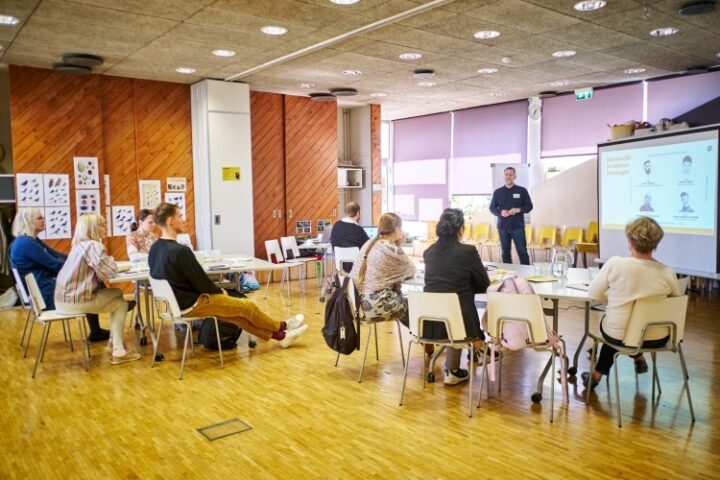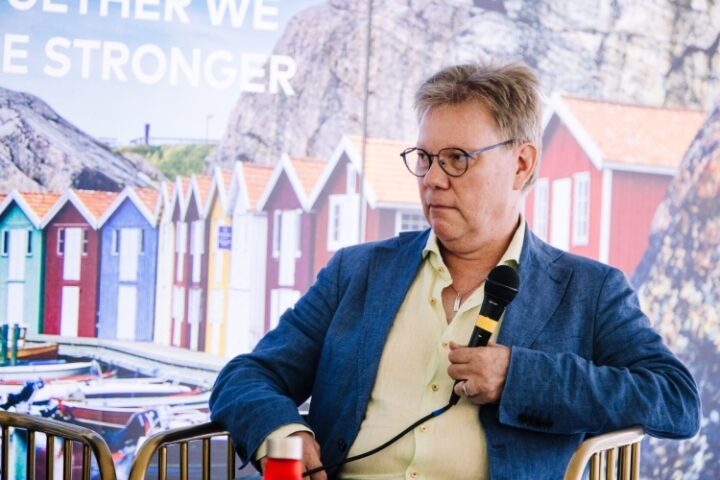What kind of diet is the healthiest and the best for the planet based on Nordic nutrition recommendations?

Food is much more than just an everyday need: it is a part of human culture and an opportunity for us to express our creativity and mark special occasions. Moreover, its significance extends far beyond our own well-being, as it shapes entire societies and affects the world around us. With all of these aspects in mind, the Nordic countries have issued their latest set of nutrition recommendations.
Food is much more than just an everyday need: it is a part of human culture and an opportunity for us to express our creativity and mark special occasions. Moreover, its significance extends far beyond our own well-being, as it shapes entire societies and affects the world around us. With all of these aspects in mind, the Nordic countries have issued their latest set of nutrition recommendations.
Karen Ellemann, the Secretary General of the Nordic Council of Ministers (NCM), says the right to sufficient food is a human right which the majority of countries seek to respect. “The food choices we make not only affect our health,” she cautions, “but have a long-term impact on the climate and environment as well.”
These issues are focussed on for the first time in the sixth edition of the Nordic Nutrition Recommendations, which was published on 20 June. This latest edition of the report is the most innovative in its 40-year history: among other things, it explains on the basis of research how food can be used to promote health and protect the environment and why we should be eating more fish and less meat, and advocates a plant-based diet.
“The nutrition recommendations stem from the results of scientific research into our daily consumption of food energy, macronutrients, vitamins and minerals and set out the underlying principles of healthy eating,” explains Katrin Lõhmus, the head of food safety and compliance at the Estonian Ministry of Regional Affairs and Agriculture.
According to Rune Blomhoff, the project leader for the Nordic Nutrition Recommendations 2023 and a professor at the University of Oslo, the report provides a scientific basis which demonstrates that healthy diets are usually also sustainable. “Some great synergies can be forged between health and the environment in the transition our food consumption needs to make,” he adds.
The same recommendations apply in Estonia
Ellemann says the report will help people in the Nordic countries maintain a healthier and more environmentally friendly diet, since it will inform national nutrition guidelines and thereby regulate the menus offered in schools, hospitals and elsewhere in the public sector.
The report has already been widely discussed in the Nordic region for many reasons, including its advice to reduce consumption of red meat – a recommendation in line with other global reports on environmental and climate research. In the end it is up to individual countries to decide how to implement the recommendations in their own nutrition guidelines, taking into account their national priorities and the local context.
“Estonia too will be taking these suggestions on board in developing its dietary recommendations, since they’re the ones that are best suited to our part of the world,” Lõhmus explains. “We were even involved in the devising of the Nordic recommendations, with the National Institute for Health Development (NIHD) taking an observer’s role.” Her ministry, she adds, is working with the NIHD in this regard.
Estonia not only drafts its own dietary advice but also food recommendations, guiding consumers on what they should be eating, which food groups it should be coming from, and how much of it they should be consuming. “Our recommendations also cover exercise, sleep and food safety,” Lõhmus adds. The national guidelines on diet and exercise which are currently valid in Estonia can be found here.
Mainly plant-based diets are recommended
The Nordic Nutrition Recommendations 2023 examine the health impact of 36 nutrients and 15 food groups. They primarily advocate a plant-based diet with plenty of fruit, vegetables, berries, legumes, potatoes and whole grains.
They also recommend a large intake of fish and nuts, a moderate intake of low-fat milk products, a limited amount of red and white meat and a minimal intake of processed meat, alcohol and processed foods with high levels of fat, salt and sugar.

The key is ensuring a varied diet. Photo: Shutterstock
Nordic Nutrition Recommendations 2023
- Eat more vitamins! The recommended intake or reference values for nine nutrients have significantly changed since the previous edition of the report: those for vitamin E, vitamin B6, folate, vitamin B12, vitamin C, thiamine, calcium, zinc and selenium.
- Don’t forget your legumes! Greater consumption of legumes is recommended, mainly for environmental reasons.
- Avoid alcohol! Since no safe limit for alcohol consumption can be provided, the recommendation is that everyone should avoid drinking alcohol. If you nevertheless consume alcohol, your intake should be low. This recommendation also applies to women who are breastfeeding. A more restrictive recommendation (total abstinence) applies to children, adolescents and pregnant women.
- Go for grains! Increased intake of whole grains has a positive impact on both health and the environment. It is recommended to eat at least 90 grams of whole grains per day.
- Get your daily dose of fruit, vegetables and berries! Eating 500-800 grams or more of a variety of fruit, vegetables and berries each day is recommended.
- Eating fish is good for your health and the health of the planet! Increased intake of fish from sustainably managed stocks has a positive impact on people’s health and the environment. It is recommended to consume 300-450 grams per week, of which at least 200 grams should be fatty fish.
- Don’t eat too much red meat! For health reasons, consumption of more than 350 grams of red meat per week is not recommended and the quantity of processed red meat in our diets should be as low as possible. For environmental reasons, the amount of red meat we eat each week should be significantly lower than 350 grams.
Estonia is a nation of meat-lovers and snackers
Lõhmus says a lot more meat and meat products, sweetened dairy products and sweet and savoury snacks are eaten in Estonia than is recommended in nutrition guidelines. These are all sources of excess salt, added sugar and saturated fatty acids. At the same time, people in the country are not eating enough fruit, vegetables, berries, whole-grain products, seeds, nuts and fish.
“A lack of balance in our diets is one of the biggest problems in public health in Estonia, and that’s a significant risk factor for becoming overweight and contracting non-communicable diseases,” she explains. The key problem here, she says, is ongoing and excessive consumption of food with low nutritional value and high energy content.
“Frequent and disproportionate consumption of sweets and drinks sweetened with sugar leads to people gaining too much food energy without those sources providing sufficient vitamins, minerals and fibre,” she warns.
Although people have started eating more fruit, vegetables and berries, the amounts they are eating (particularly of vegetables) remain modest compared to the recommended intake. “Estonia’s guidelines are for at least 300 grams of vegetables and at least 200 grams of fruit and berries per day,” Lõhmus notes.
A study of salt consumption has also shown that people in Estonia use too much salt. According to the national nutrition recommendations, we should not be deriving more than 6 grams of salt per day from all sources, including as sodium equivalent to salt in natural sources. However, people in the country are consuming, on average, more than 10 grams of salt per day.
Nordic efforts are being recognised around the world
The publication of the new Nordic Nutrition Recommendations on 20 June garnered international interest. WHO Secretary General Tedros Adhanom Ghebreyesus says the report demonstrates a powerful link between healthy people and a healthy planet.
“I congratulate the NCM for this impressive product and for the inclusive process of public consultation that produced it,” he says. “The overarching recommendation in line with current scientific literature is to shift to plant-based diets.”
– The Nordic Nutrition Recommendations form the scientific basis for national dietary guidelines and food-based advice in the Nordic countries and Baltic States.
– Five such sets of recommendations have previously been produced as a result of international cooperation, the first of which was published in 1980.
– The most recent recommendations, dating from 2012, have been downloaded more than 300,000 times all over the world.
– The National Dietary Survey Database 2014-2015 contains information on the eating habits of almost 5000 people in Estonia. The next such survey is planned to be conducted from 2025-2027.
– The NIHD conducts regular surveys covering a range of health-related issues, including the eating habits of people in Estonia. The most recent survey of this kind took place in 2019; the next is planned for 2025.


